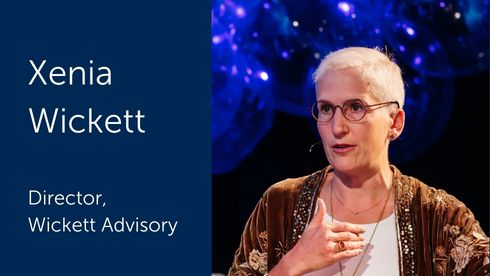The Energy Agenda
Asia – the gravity centre for energy
Energy is the glue that holds everything together, and nothing moves without it. In an interview with ONS thought leader Narendra Taneja shares insights into the importance of understanding energy holistically, the gravity center shift to Asia, and Europe’s inward-looking tendencies.

In short:
- India, with more than 1,4 billion people, is the most populous country in the world and the fifth-largest economy in the world.
- India is projected to be the second-largest economy in the world by 2050, with Asia now being the global gravity center for energy.
- According to IEA, energy consumption in India has more than doubled since 2000 -the deman will continue to increase rapidly. To meet growth in electricity demand over the next twenty years, India will need to add a power system the size of the European Union to what it has now.
- India is the third-largest global emitter of CO2, despite low per capita CO2 emissions.
This article was first publisehd May 2023. It has been updated in connection with the World Energy Policy Summit in New Dehli, 26-27 October.
---------------------------------------------------------------------------------------------
Narendra Taneja is a name synonymous with energy. From tracking every aspect of energy, including policy, business, geoeconomics, geopolitics, climate transition, and security, he feels his passion has given him a clear view of the world, helping him understand the energy sector and landscape holistically.
He is the Chairman of the Independent Energy policy institute in New Delhi, India. And he also leads the World Energy Policy Summit every year in New Delhi.
«The world has seen the leaders who built the Western world struggle hard to create the kind of world we enjoy today. It’s important to read history, but Europe is too busy enjoying its high standard of living to understand the bigger picture,» says Taneja.
Asia, with its 4.4 billion population, is in many cases truly the gravity center of the world, and the energy sector in Asia is now the global gravity center for energy, Taneja explains.
India with its 1.4 billion people and the fifth-largest economy in the world, is projected to be the second-largest economy by 2050, almost at par with the United States. Tanjea notes, “the energy sector in Asia is the most important region globally, and it is where the future lies.” Therefore, understanding the energy sector holistically is crucial.

Europe’s Inward-Looking Tendencies and Energy Security
Even though he loves Europe, Taneja adds that the region tends to be inward-looking, and its media people and ordinary citizens tend to have a different view than the Asian population.
«Some people might not like what I am saying, but after Ukraine, Europe began building an energy fortress for itself and forgot about everything else. The energy transition has suffered massively as a result,» Taneja says.
“Some might say the energy transition accelerated the last year?”
«I hear they say this, but no one explains how it has actually accelerated,» Taneja exclaims.
He adds; Building an energy fortress for rich countries comes at the cost of poor and developing countries. Nobody questions those who articulate better, but when we compromise with our energy future, we compromise with our kids’ energy future.”
He calls for an acknowledgement of reality and a rework of the energy transition in a way that isn’t based on political points.
Compromising energy security is not an option.
Listen to the full podcast with Narendra Taneja below:
Listen & Learn more

Listen & Learn more
Listen & Learn more
Listen & Learn more
Listen & Learn more
.png)
Iran and the international energy markets
post

State of the world 2026: Leadership when outcomes widen
post


